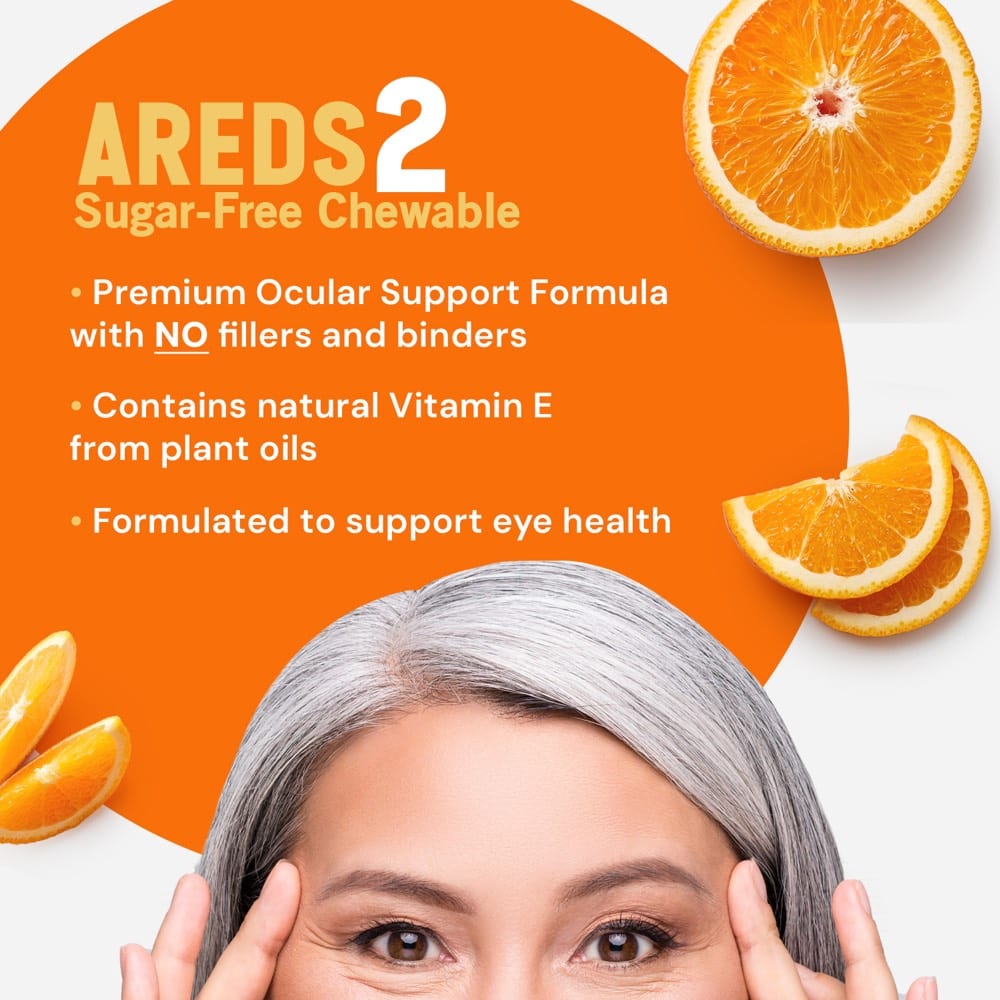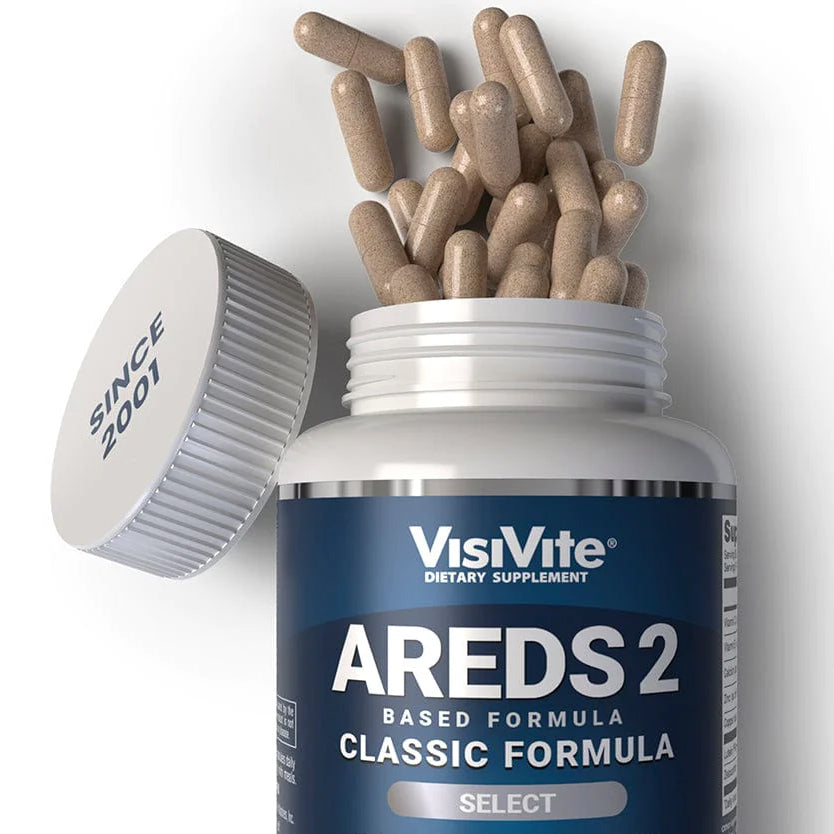Understanding the benefits and side effects associated with AREDS 2 vitamins is crucial for informed decision-making regarding their use.
Understanding AREDS 2 Vitamins:
AREDS 2 vitamins are a specific formulation of dietary supplements designed to support eye health, particularly in individuals at risk of AMD progression. The original AREDS study (sometimes referred to as AREDS 1), conducted by the National Eye Institute (NEI) in the United States, identified a combination of antioxidants and zinc as beneficial for reducing the risk of AMD progression in individuals with intermediate to advanced AMD.
Building upon the original AREDS formulation, the AREDS 2 study investigated the potential benefits of modifying the original formula by adding or substituting specific nutrients. Specifically, AREDS 2 substituted lutein and zeaxanthin for beta-carotene, because beta-carotene was found to increase the risk of lung cancer in smokers and former smokers.
The AREDS 2 formulation includes:
- Vitamin C: An antioxidant known for its role in supporting overall immune function and reducing oxidative stress.
- Vitamin E: Another antioxidant that protects cells from oxidative damage and supports eye health.
- Lutein and Zeaxanthin: Carotenoids found in high concentrations in the macula of the eye, where they act as antioxidants and filter harmful blue light.
- Zinc: A mineral crucial for eye health and immune function.
- Copper: A mineral required to prevent zinc from inducing anemia.
AREDS 2 Vitamins Potential Side Effects:
While AREDS 2 vitamins are generally considered safe for most individuals, certain side effects and considerations should be taken into account:
-
Gastrointestinal Distress: One common side effect associated with AREDS 2 vitamins is gastrointestinal discomfort, including nausea, stomach cramps, and diarrhea. This is sometimes attributed to the high doses of zinc included in the formulation. Notably, AREDS 2 found that there was no clinical difference between 25 mg zinc and 80 mg zinc per day. It is for this reason that VisiVite has chosen to use a lesser amount of zinc for this reason in their AREDS 2 supplements. Some individuals may experience these symptoms, particularly when taking the supplements on an empty stomach. AREDS 2 chewable tablets have also been noted to reduce GI side effects.
-
Copper Imbalance: The high dose of zinc in AREDS 2 vitamins may interfere with copper absorption. Prolonged use of zinc supplements can lead to copper deficiency, which may manifest as fatigue, weakness, and neurological symptoms. To mitigate this risk, VisiVite AREDS 2 formulations includes a lower dose of zinc compared to the original AREDS formulation, while maintaining the 40:1 ratio of zinc to copper.
-
Interaction with Medications: As with any supplement, it's essential to consider potential interactions with other medications. For example, individuals taking anticoagulants might consider taking an AREDS 2 without Vitamin E, to reduce their incidence of bleeding. All individuals taking AREDS 2 vitamins should consult with their healthcare provider, especially if they are on medications that may interact with any of the components of the supplement.
Scientific Evidence and Recommendations:
Numerous clinical studies have examined the safety and efficacy of AREDS 2 vitamins in reducing the progression of AMD and supporting overall eye health. The AREDS 2 trial, involving thousands of participants, demonstrated that the formulation was effective in reducing the risk of AMD progression in individuals with intermediate AMD or advanced AMD in one eye.
Despite the potential side effects, the benefits of AREDS 2 vitamins in slowing the progression of AMD outweigh the risks for many individuals at risk of developing the condition. However, it's crucial to consider individual health status, potential contraindications, and the advice of healthcare professionals.
Conclusion:
AREDS 2 vitamins represent a valuable tool in the management of AMD and the promotion of overall eye health. While they are generally safe for most individuals, potential side effects of should be considered. Consulting with a healthcare provider before starting any supplement regimen is recommended, particularly for those with pre-existing medical conditions or who are taking other medications.
By understanding the risks and benefits associated with AREDS 2 vitamins, individuals can make informed decisions about their eye health and overall well-being.
References:
- Age-Related Eye Disease Study 2 Research Group. (2013). Lutein + zeaxanthin and omega-3 fatty acids for age-related macular degeneration: the Age-Related Eye Disease Study 2 (AREDS2) randomized clinical trial. JAMA, 309(19), 2005–2015.
- Chew, E. Y., Clemons, T. E., SanGiovanni, J. P., Danis, R. P., Ferris, F. L., Elman, M. J., ... & Antoszyk, A. N. (2014). Secondary analyses of the effects of lutein/zeaxanthin on age-related macular degeneration progression: AREDS2 report No. 3. JAMA ophthalmology, 132(2), 142-149.
- National Institutes of Health, Office of Dietary Supplements. (2022). Zinc Fact Sheet for Health Professionals. Retrieved from https://ods.od.nih.gov/factsheets/Zinc-HealthProfessional/.














